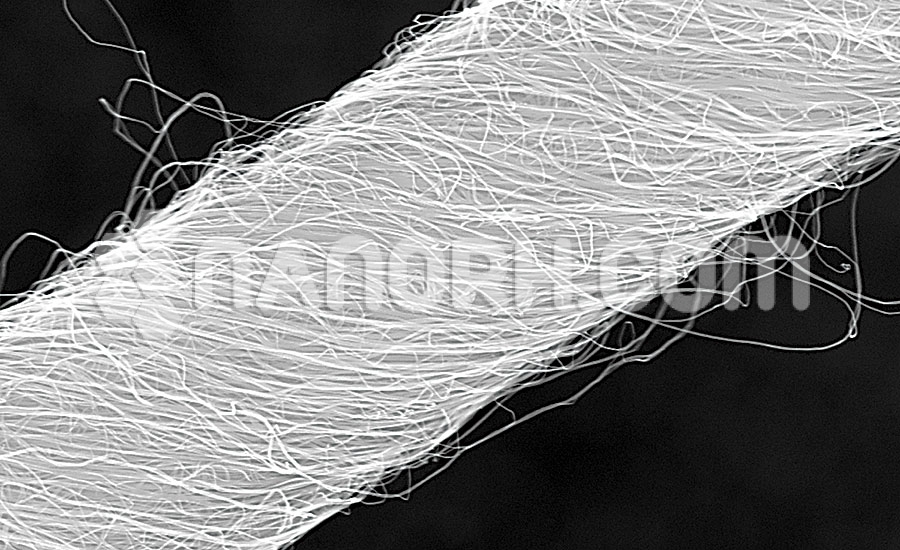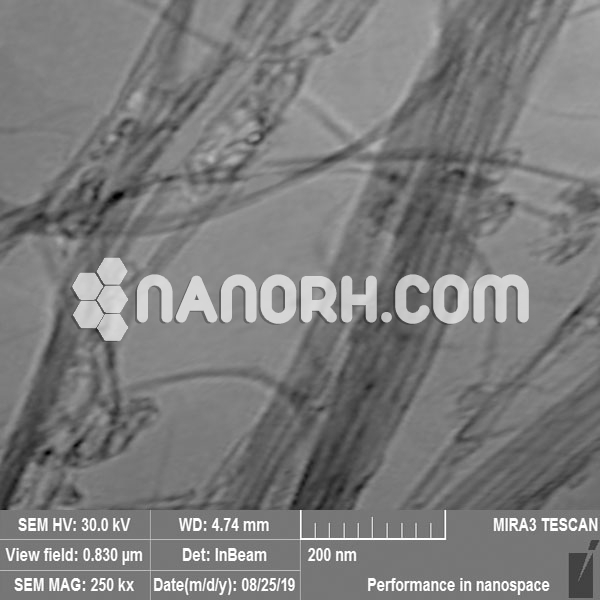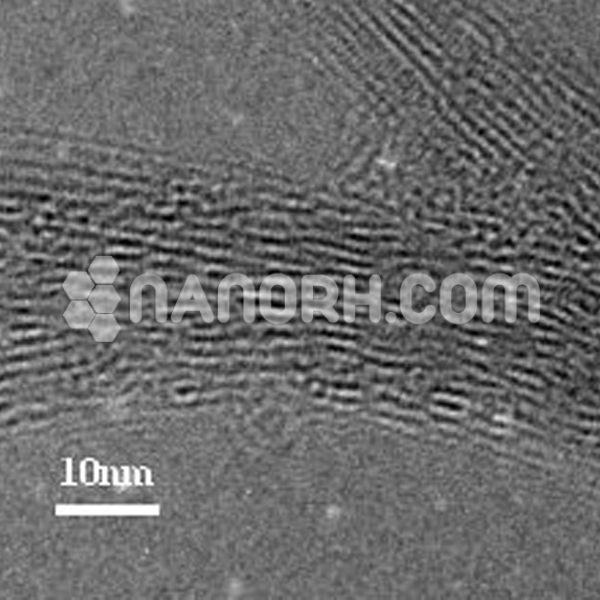| Copper Carbon Nanotubes | |
| Product No | NRE-37007 |
| CAS No. | NA |
| Purity | 97% |
| Average Diameter | >55 nm |
| Average Length | 10-30um |
| Special Surface Area(SSA) | 60g/cm3 |
| Tap Density | 0.12 g/cm3 |
| True Density | 2.1 g/cm3 |
| Electric Conductivity | > 100 S/cm |
Copper Carbon Nanotubes
Copper carbon nanotubes are a unique form of nanomaterial that combine the excellent electrical and thermal conductivity of copper with the remarkable mechanical properties and high surface area of carbon nanotubes.
Potential Applications:
Copper carbon nanotubes (CuCNTs) have a range of applications across various fields due to their unique combination of properties. Here are some key applications:
Electronics:
Conductive Interconnects: CuCNTs are used in microelectronic circuits to improve conductivity and reduce signal loss.
Transistors: They can enhance the performance of field-effect transistors (FETs) by providing better electron mobility.
Energy Storage:
Batteries: CuCNTs can be utilized in lithium-ion and other types of batteries to enhance conductivity and increase energy density.
Supercapacitors: Their high surface area and conductivity improve charge storage and power delivery.
Composites:
Conductive Polymers: CuCNTs can be added to polymer matrices to create lightweight, strong, and conductive materials for use in various applications, such as automotive and aerospace components.
Structural Materials: They can enhance the mechanical properties and thermal stability of composites.
Thermal Management:
CuCNTs are effective in thermal interface materials, helping to dissipate heat in electronic devices and improving thermal conductivity in various applications.
Sensors:
Gas Sensors: CuCNTs can be used in sensors for detecting gases and environmental pollutants, leveraging their high surface area and conductivity.
Biosensors: Their biocompatibility and conductivity make them suitable for biosensing applications, including detecting biomolecules.
Biomedical Applications:
Drug Delivery: CuCNTs can be used for targeted drug delivery systems due to their ability to encapsulate drugs and facilitate controlled release.
Imaging and Therapy: They may also be used in imaging techniques and photothermal therapy, capitalizing on their unique optical properties.
Antimicrobial Applications:
The presence of copper gives CuCNTs inherent antimicrobial properties, making them useful in coatings and materials for medical devices and surfaces.




